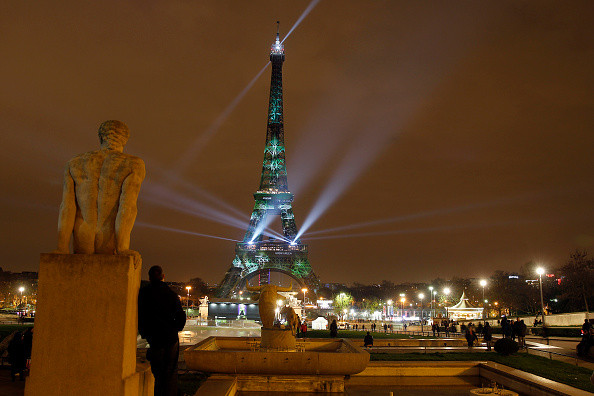COP21: All about history, goals and timeline of Paris climate change conference

The 21st United Nations Conference of the Parties, or COP21, has started in Paris. France is hosting and presiding over the global event in Le Bourget, a north eastern suburb of Paris, from 30 November to 11 December.
A total of 150 countries are taking part in the conference where the nations are expected to reach an agreement on tackling climate change. The goal is to sign a pledge to keep the average rise in global temperature below 2C.
What is COP: History and timeline
1992: The UN Framework on Climate Change (UNFCCC), which now has a membership of 195 nations, was adopted at the Rio Earth Summit. The framework called for action aimed at stabilising atmospheric concentrations of greenhouse gases to avoid "dangerous anthropogenic (human-emitted) interference with the climate system".
1994: The UNFCCC came into force on 21 March, 1994.
1995: The COP was created to review the implementation of UNFCC and the first meetings (COP1) were held in Berlin followed by subsequent conferences almost every year.
1997: The Kyoto protocol was adopted at COP3 in Japan. The protocol, which came into force in February 2005, put obligation to reduce carbon emissions on developed countries by 2012.
2005: The Montreal action plan was produced at COP11 held in the Canadian city. The plan was an agreement to extend the expiry date of the Kyoto protocol beyond 2012 and negotiate "deeper cuts in greenhouse-gas emissions".
2009: The COP15 was held in Copenhagen where an agreement to succeed the Kyoto Protocol was unfortunately not realised.
2011: A Green Climate Fund was created at COP17 in Durban, South Africa.
2015: The COP21 is expected to be a historic meet in over 20 years of UN negotiations in which the parties for the first time aim at signing a universal agreement on climate, with the target of keeping global warming below 2C from the current 2.5 to 3.76C.
According to the official website of the Paris conference, the convention is expected to attract about 50,000 participants including 150 heads of state and 25,000 official delegates from government, intergovernmental organisations, UN agencies, NGOs and civil society. Reducing dependence on fossil fuels is likely to be the key focus of the conference.
© Copyright IBTimes 2025. All rights reserved.






















